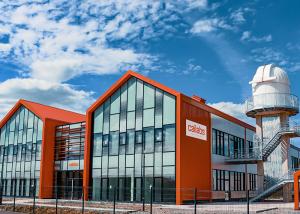Processing with femtosecond lasers by using multi-plane light conversion beam shaping technique
Photonics West 2019
Authors: K. Mishchik2, E. Audouard2, E. Mottay2, C. Honninger2, C. Jacquard1, O. Pinel1, A. Billaud1, G. Labroille1, J-F. Morizur1
1Cailabs (France)
2Amplitude Systemes (France)
We present ultrashort laser processing of metals with spatially shaped beams. Shaping is based on a novel approach using multi-plane light conversion (MPLC) technology, where transformation is implemented by a succession of transverse phase planes and lenses. This non-diffractive approach allows to transform both phase and amplitude of a laser beam without any intrinsic losses. The successive transformations are achieved by reflective texture surfaces, which help to minimize losses and enable high power and energy laser beam transformation. MPLC elements are tested with 100W femtosecond laser source. Performance is not dependent on the wavelength, therefore MPLC technique is suitable for beam shaping of femtosecond pulses with wide spectral bandwidth while conserving all advantages of ultrashort laser sources. Special design of MPLC elements allows to achieve beam shaping which is less sensitive to alignment and laser pointing stability.
We demonstrate scribing and percussion drilling of thin foils and massive metals (Cu, Mo, Ni) using top-hat and multi-top-hat beam forms. The main defiance in using Gaussian beam profiles is to manage the energy which is deposited into the material but not contributing to the ablation. Top-hat beam shaping solves this problem. It is known for the increase of the efficiency of laser power use and significant reduction of heat affected zone. We demonstrate patterning with high accuracy and repeatability with no distortion due to heating or residual stresses even at high repetition rates at MHz level. Parallel processing with multi top-hat beams will be presented to fully exploit 100W laser power.
